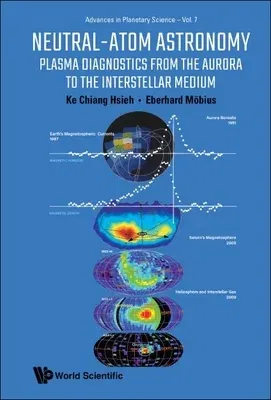Astronomy has been associated with the detection of electromagnetic
waves or photons from within and beyond the solar system, ranging from
Radio to Gamma-ray Astronomy. Particle Astrophysics, including Neutrino
and Dark-Matter Astrophysics today, started with the discovery of cosmic
rays in 1911. The Space Age expanded particle observations to in-situ
studies of lower energy electrons and ions with a variety of charge
states in space plasmas traversed by spacecraft. Remote observation of
space plasmas became possible only after the discovery of energetic
neutral atom (ENAs) in space in 1950.
This book is a primer for those who wish to learn more about the origins
of ENAs, related detection techniques, and how ENA images and spectra
can be used to study space plasmas beyond the reach of spacecraft. It
tells a comprehensive story from the first encounters with ENAs in the
Earth's magnetosphere to Neutral-Atom Astronomy of the edge of the
heliosphere and the interstellar medium. This story includes how ion
mass spectrographs evolved into ENA imagers, overcoming the technical
challenges, how to extract information from ENA data, and a variety of
diagnostic applications on the magnetosphere, interplanetary space,
other solar-system objects, the heliospheric boundary, the local
interstellar medium, and a glimpse into the future of Neutral-Atom
Astronomy.
The authors hope to inform and inspire readers to further enrich this
field of study.

